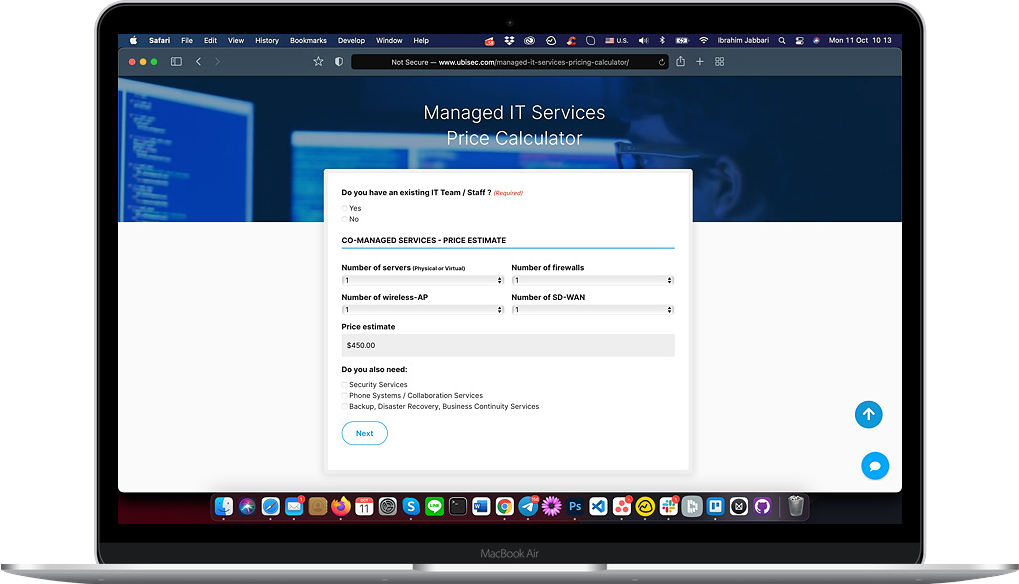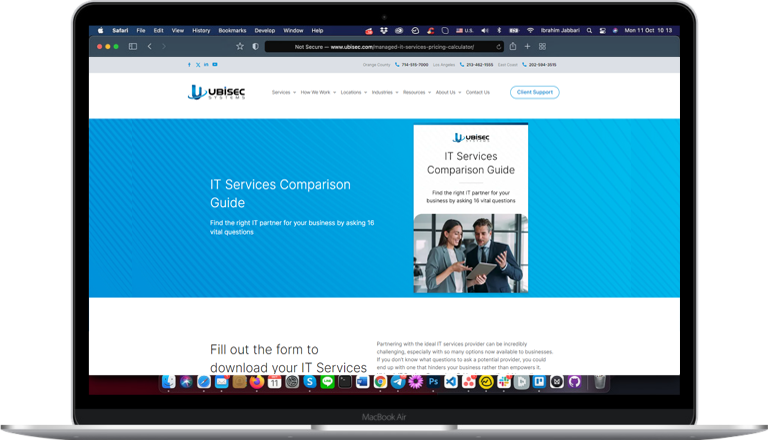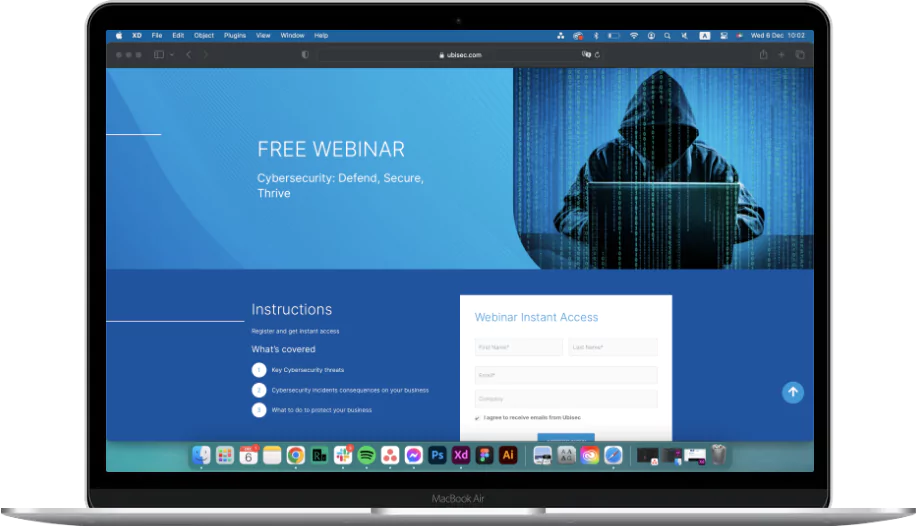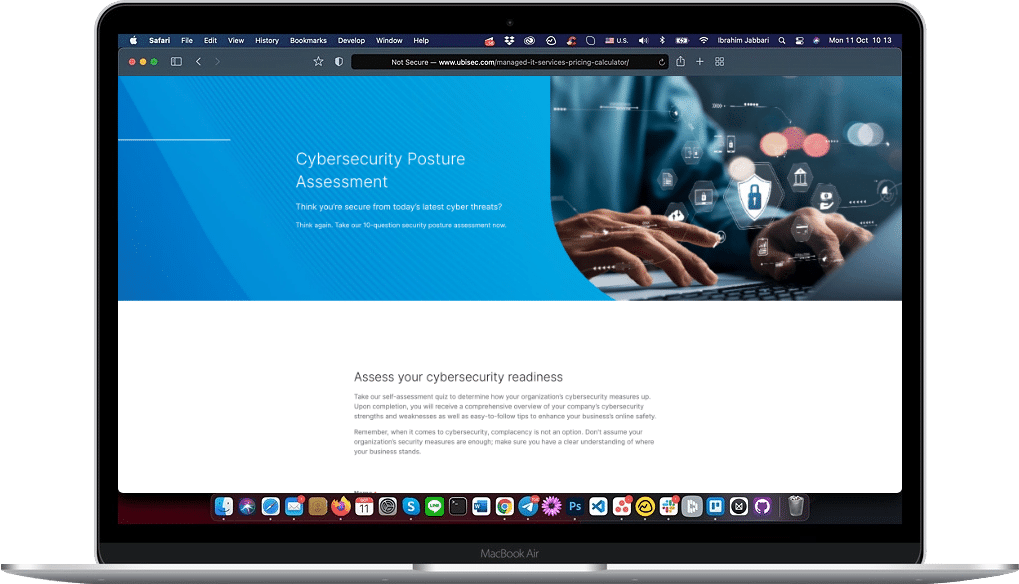In today’s digital landscape, protecting sensitive data is a top priority for organizations across various industries. With cybercriminals targeting valuable information, such as personal data, financial records, trade secrets, and intellectual property, organizations must prioritize data protection to maintain trust, comply with regulations, and avoid severe consequences.
Organizations can mitigate the risks of data breaches and maintain a secure environment by implementing robust cybersecurity controls, conducting regular security assessments, and providing employee training. Furthermore, demonstrating a solid commitment to cybersecurity and compliance builds trust among customers, partners, and regulators. With these proactive measures, organizations can navigate the digital landscape, gain a competitive edge, and safeguard financial stability.
In the following sections, we’ll delve deeper into these topics, exploring organizations’ challenges and providing valuable insights and strategies to address them effectively.
Protecting Sensitive Data
Protecting sensitive data has become highly emphasized for companies in today’s digital age. Industries like finance, manufacturing, real estate, and government are prime targets for cybercriminals due to the vast amount of sensitive data they handle. Safeguarding this data is crucial for maintaining customer confidence and regulatory compliance and avoiding severe consequences.
Types of data: Sensitive data encompasses personal information such as names, addresses, Social Security numbers, and medical records, which are valuable to cybercriminals for identity theft and fraud. Financial records like bank account details and credit card numbers are also targets for unauthorized access and financial fraud. Furthermore, industries like manufacturing and real estate deal with trade secrets and intellectual property, which can give competitors an unfair advantage if obtained by malicious actors. Protecting these valuable assets, such as proprietary formulas, designs, or customer databases, is essential to secure a company’s innovations, market position, and revenue streams.
Data breaches: Data breaches can have far-reaching consequences. They can lead to a severe loss of trust from customers and clients, requiring extensive security measures and transparent communication to rebuild relationships. Organizations may also face substantial regulatory fines for not complying with data protection regulations, impacting their finances. Your legal liabilities to your customers may include lawsuits seeking compensation for damages and reputational damage, further compounding the effects of a breach.
Mitigation: Organizations must implement robust data protection measures to mitigate these risks. A comprehensive data protection measure involves strong cybersecurity controls like encryption, access controls, and intrusion detection systems. Regular security assessments, employee training programs, and incident response plans are crucial for a proactive and comprehensive approach to data protection.
Protection: By prioritizing protecting sensitive data, organizations can mitigate the risks of data breaches, maintain regulatory compliance, safeguard their reputation, and preserve stakeholder trust. In today’s interconnected world, investing in data protection is essential for organizations across all sectors, considering the ever-evolving cyber threats.
Ensuring Business Continuity
Maintaining uninterrupted access to critical applications and network resources is crucial in your everyday business environment. If your business operations are disrupted at any moment throughout the day, this can lead to significant financial losses and reputational damage to your organization. Your company needs a well-trained IT team to respond effectively to incidents and restore normal operations.
Preparation: Preparation is crucial to business continuity. An equipped IT team can identify vulnerabilities and develop robust risk mitigation strategies. Thorough risk assessments, redundant systems, backup solutions, and disaster recovery plans help minimize the impact of unforeseen events.
How an IT team can help: The IT team’s role in incident response is vital. They must respond promptly and effectively to incidents such as hardware failures or security breaches. With technical knowledge, they can diagnose issues, implement temporary workarounds, and work towards swift resolutions. Incident response protocols and procedures and clear correspondence and coordination within the team and other departments minimize downtime and ensure a seamless transition back to normal operations.
Problem-solving and resolution: Problem-solving and decision-making abilities are essential for an effective IT team. They must analyze complex situations, make informed judgments, and prioritize actions aligned with business goals. These critical thinking skills ensure not only prompt incident resolution but also the implementation of long-term solutions.
Safeguarding the Organization’s Reputation
Safeguarding an organization’s reputation in today’s digital landscape is more crucial than ever. A single security breach can lead to losing the trust of customers, partners, and regulators. Organizations must prioritize cybersecurity and implement robust measures against unauthorized access and data leaks to prevent such risks.
Cybersecurity’s role. Cybersecurity plays a critical role in preventing security breaches and protecting a company’s reputation. Organizations can create a secure environment that deters potential attackers and safeguards sensitive information by utilizing firewalls, encryption protocols, and intrusion detection systems.
Cybersecurity culture builds trust. Apart from technical solutions, organizations should demonstrate a strong cybersecurity posture to maintain trust and credibility. Customers, partners, and regulators are increasingly concerned about data privacy and security. By displaying your commitment to cybersecurity, organizations can build trust and assure stakeholders that their sensitive data is handled responsibly and protected from unauthorized access.
Cyber Preparedness is vital. Regular security assessments, including audits and penetration testing, are essential to identify vulnerabilities promptly. By addressing these weaknesses promptly, organizations can significantly reduce the danger of a security breach and damage to their reputation.
Create a cyber-culture. It’s important to note that cybersecurity is not solely the responsibility of the IT department. Every employee has a role in keeping a secure environment. Therefore, comprehensive employee training on cybersecurity best practices is crucial. Educating staff members on password security, social engineering, and safe browsing habits can strengthen the overall security posture and reduce the likelihood of human error leading to a breach.
Compliance with Industry Regulations and Standards
Complying with industry regulations and standards is crucial for businesses in various sectors. These guidelines protect sensitive data, ethical practices, and accountability. Three common regulations include the GDPR, HIPAA, and PCI DSS.
GDPR: The General Data Protection Regulation (GDPR) focuses on data protection and privacy within the European Union (EU). It mandates secure data handling, consent for data collection, and control over personal data. Compliance applies to EU-based businesses and organizations handling EU residents’ data.
HIPAA: The Health Insurance Portability and Accountability Act (HIPAA) sets healthcare industry standards in the US. It protects individuals’ personal health information or protected health information (PHI). Healthcare providers and insurers must comply to safeguard patients’ sensitive medical data.
PCI DSS: The Payment Card Industry Data Security Standard (PCI DSS) safeguards credit cardholders’ data during transactions. Compliance is crucial for organizations handling payment card information. Failure to comply can result in financial punishments and loss of customer trust.
Why strong cybersecurity measures are vital to your organization’s security. Strong cybersecurity measures are vital for compliance. Technical controls (firewalls, encryption) and procedural controls (access controls, training) protect data. Educating employees about compliance is crucial. Training programs and awareness campaigns foster a culture of compliance, ensuring responsible data handling. Non-compliance has severe consequences. Apart from penalties, it damages an organization’s reputation and leads to loss of business opportunities.
Gaining a Competitive Advantage
In today’s digital age, customer data privacy, and security awareness is increasing. With increased data breaches and cyber-attacks, customers are cautious about sharing personal information. Businesses need to prioritize cybersecurity to enhance trust and loyalty.
Data breaches have become frequent, exposing sensitive customer information like first and last names, home addresses, and credit card details. Customers are concerned about data safety and avoid businesses that cannot guarantee protection.
To address these concerns, companies must invest in robust cybersecurity. A comprehensive cybersecurity plan includes implementing encryption protocols, updating security software, and conducting vulnerability assessments. Demonstrating commitment to safeguarding customer data builds confidence and trust.
Transparency is crucial. Clear privacy policies and explicit consent for data collection and processing establish trust. Honest practices in handling personal information help customers trust businesses.
Building customer loyalty requires a personalized experience. Analyzing customer preferences and behavior allows businesses to offer tailored recommendations and customized offers, showing they value customer needs.
Proactive communication and prompt support are vital. Addressing concerns and resolving issues strengthens the business-customer relationship. Engaging through social media, email, or live chat fosters a sense of community and value.
Reducing the Financial Damage from Cyber Incidents
Cyberattacks have severe financial consequences for businesses. Direct costs include incident response, data recovery, legal fees, and regulatory fines. Indirect costs, like reputational damage, lost business opportunities, decreased customer trust, and prolonged downtime, can be even more harmful. Organizations must prioritize cybersecurity and implement effective strategies to minimize the financial impact.
Establish a robust cybersecurity framework. A comprehensive framework is a critical foundational piece to reducing financial damage. Advanced security technologies such as intrusion detection, firewalls, and encryption enhance defenses against cyber threats. These technologies detect and mitigate potential attacks, minimizing the impact of breaches.
Invest in experts. Organizations should also invest in experienced cybersecurity professionals who monitor and respond to emerging threats. These experts identify vulnerabilities, develop incident response plans, and implement proactive security measures, minimizing financial losses from successful attacks.
Employee training is vital. Employee training on cybersecurity best practices is essential to prevent human error incidents. Regular training sessions educate employees about the latest threats, teach them to recognize and report suspicious activities, and promote security awareness. Equipping employees with knowledge and tools reduces the risk of incidents caused by human error.
Commitment to cybersecurity builds trust. Maintaining a solid cybersecurity posture protects a company’s reputation and customer trust. Consumers prioritize data protection and trust businesses committed to cybersecurity. Demonstrating this commitment instills confidence, ensuring long-term loyalty and success.
Conclusion
In conclusion, cybersecurity is a critical component of modern business operations. By recognizing the benefits and investing in cybersecurity, organizations can navigate the evolving threat landscape, protect sensitive data, maintain business continuity, build trust and loyalty, comply with regulations, and minimize financial damage. Embracing cybersecurity is essential for organizational success and a responsible approach in today’s interconnected world.We here at Ubisec Systems understand that data privacy and security are vital to your business’s success. Our goal is to help keep your information safe so you can focus on serving your customers. So, if you’re ready to have a conversation, click here to start NOW!









